“Here in Venezuela, you don’t live, you just survive…”
A Scottish saltire flashes across the Instagram story of once-lost Cuban fighter, Cristhian Martinez.
Now living in Slovakia, I’d managed to track down the star of Sons of Cuba last year to share his own story of defection – from Cuba, and then from boxing almost entirely. Surely, he wasn’t moving to Scotland. I asked him, and he explained that he was sharing the post on behalf of an old friend from Venezuela.
Stories start in several obscure ways; and the tale of Johana Gomez and her quest to relocate to Edinburgh, Scotland, from La Guairá State is no different. In fact, it typifies the bizarre, boxing tales that the sport’s writers have almost come to expect. It doesn’t happen in cricket or in football – or maybe their tight control of player communication restricts breathing life into the remarkable. But in boxing, anything seems possible.
Gomez is steadily approaching the completion of complex visa applications for her proposed move to the UK, though still reliant on significant funding. Sacrificing a life spent with family and familiarity and throwing her future into the hands of Leith Victoria’s coach, Gary Young, must have been borne of something substantial.
‘Theirs’ must have been a partnership years in the making; the pair have surely spoken at international tournaments or interacted through friends in common,’ you’d assume.
In fact, it started in Orinoco Latin Food, an Edinburgh-based, Latin street food restaurant on Leith Walk, specialising in Venezuelan arepas.
Situated near Young’s Leith Victoria amateur gym, he believes his relationship with the restaurant’s staff must have been the catalyst for Gomez’s interest: “I pop in for coffees and I’m friends with a few people in there. We spoke a lot about boxing and Edwin Valero, who’s a well-known fighter from over there. I loved Valero; I was in LA around the times he was visiting and sparring, never seen him, but people used to tell me about the way he sparred. I think we linked up through that.
“It’s the power of social media that’s pulled the whole thing together, bringing people together with things in common. She liked a couple of photos on my Instagram page, and I didn’t even know that she followed my personal page. When I closed down my social media, she popped up on the Leith Victoria page, liking photos, and it showed up on our feed. It just kind of organically happened from there.”
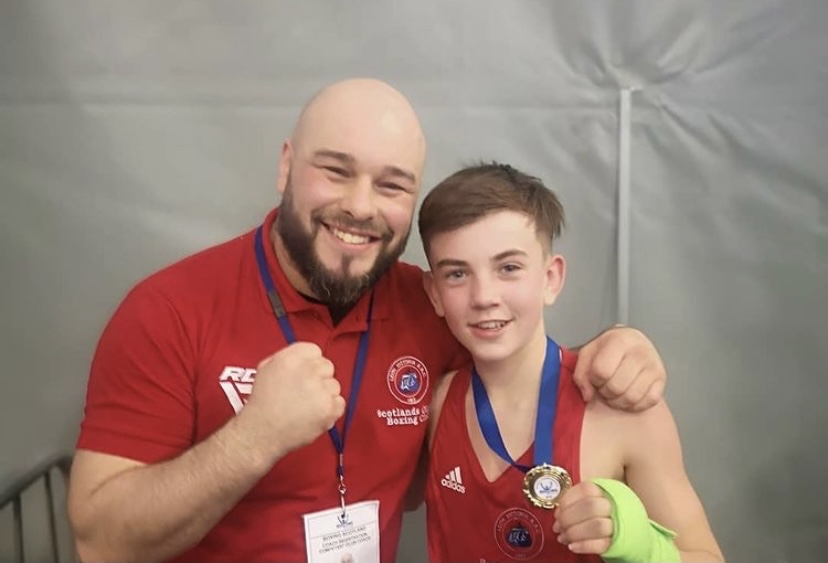
Photo: Gary Young.
Gomez, now 23-years old and still living near Caracas in poverty, caught Gary’s attention – and they continue communicating via Google Translate and Instagram direct messaging. Normally, when contacted out of the blue by aspiring, would-be professionals, their interest in boxing has been peaked whilst training for white collar bouts, Young explains, discussing what set the enthusiastic prospect apart.
Taking one brief look into Johana’s amateur pedigree paints a clearer picture: She is the 10-time, reigning Venezuelan amateur champion and secured a bronze medal at the highly reputable World Military Games in Wuhan, China (2019). All of which she’d achieved just six years after lacing up her gloves for the very first time.
She is exactly the type of fighter who could be contesting for professional world honours within a handful of bouts, and Young knows it.
When speaking to Gomez for Boxing Social, it became clear that the logistical issues faced don’t compare to some of the obstacles she has already been forced to overcome: “I lost my father when I was a baby, and my mother struggled a lot to get ahead in life,” she said. “But the greatest difficulty is the country’s [financial] situation, which greatly slows down our quality of life. You have to make a lot of effort to get the basics for living, medicines, or for studies. The salary versus cost-of-living ratio is pretty terrible.
“Here in Venezuela, you don’t live, you just survive. We live in constant financial worry and that’s our reality. My initial dream was to be a professional soccer player, I was totally dedicated to it. I always made it uncomfortable for my rivals on the pitch [due to my strength], and I had a really great time playing for my team.”
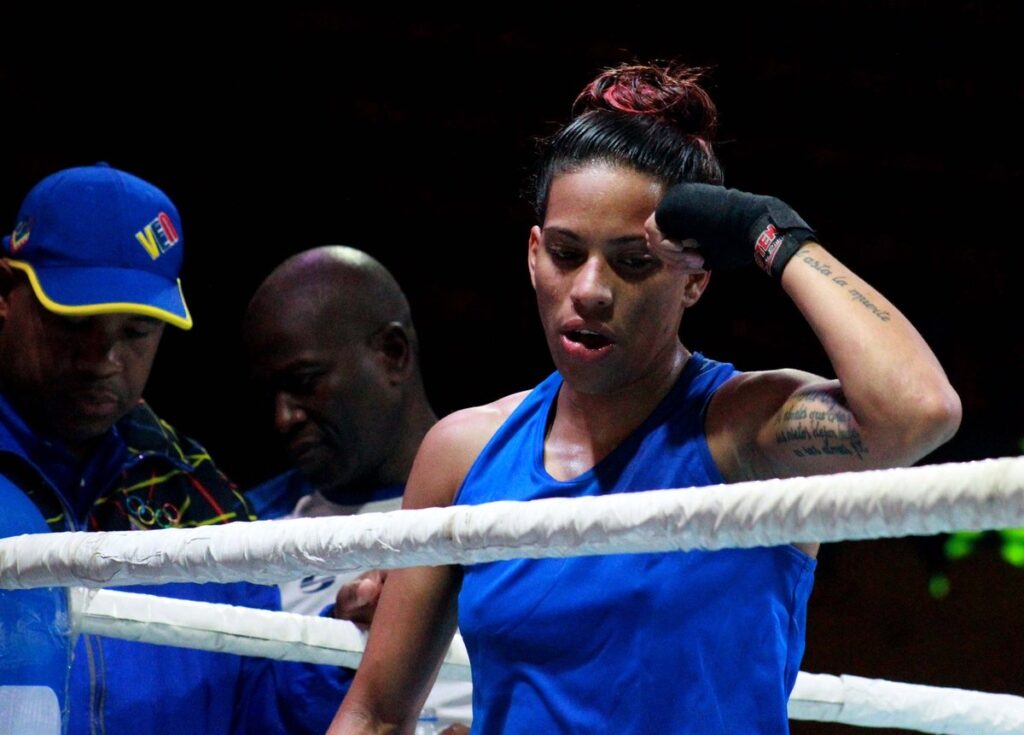
Photo: Johana Gomez.
Playing soccer wouldn’t last though, through no fault of her own, and the young, passionate athlete was plunged into a state of personal darkness and uncertainty after being caught in the wrong place at the wrong time.
“Sadly, one day while shopping, a vehicle lost control and ran over many people, including myself. We found out later that it had no working brakes,” Gomez recalled, replaying that cruel twist of fate. “They helped me in hospital, but not in the correct way and my leg suffered serious damage. I tried therapy to recover it 100% so that I could be back on the pitch again, but it was never the same. Even the orthopaedic doctor clearly told me that if I insisted on playing soccer, it could end up worse, at the risk of losing all mobility.
“That affected me a lot, I felt that my life fell to the ground. I was depressed for months, I locked myself in and I felt like I had lost my purpose. A friend of mine invited me to a boxing event; I participated without any preparation and there, I began to vent, and to concentrate. I was able to stop thinking about how bad I felt. Boxing somehow saved me from a cycle of darkness in my life. I could get out. From that moment I knew that my purpose was to be great, regardless of the sport or discipline.”
Just over a year after her amateur debut, Gomez had won her bronze medal at the World Military Games. Her progress was rapid, proving natural ability coupled with hard work could yield impressive results in such a short space of time, even in countries without world class facilities and financial sponsorship.
“Poverty breeds hunger. It’s a totally different mentality,” explains Young, who has his own apprehension about the prospective relocation. “She’s right in what she says: there’s no real opportunity for women boxing in America. But a lot of people fantasise about the glory of professional boxing; then the reality is a bit grim. It can be a very hard way to make easy money.
“Can you imagine she comes all the way over and struggles to survive here? It needs to be right. Boxing is a fickle, fickle business. If she starts doing really well, I don’t want her to become an avoided fighter, like Valero was. It’s hard to put into words, but what if I can’t help her become successful? That’s my only concern. We need to make sure we can help this girl make a living.”
Those concerns are valid, but the Scottish trainer is dedicated to trying to make this work. The completion of visa applications was tricky enough for the Edinburgh-man when he flew over to Los Angeles to further his own career as a professional fighter. At least then, the mistakes made lay with him and him alone.
He tells Boxing Social of interest from a filmmaker, looking to fly over to Venezuela and begin work on an inspiring documentary in the hopes of raising funds to complete Gomez’s move. It would mean being followed by cameras for the next two years, but Young isn’t fazed by that if it’s the right thing to do for his fighter. Gomez, however, remains resolute in furthering her bond with Scotland.
“I thought that Gary’s message on my Instagram was a joke, but he really communicated with me and he is giving me this opportunity to become the best professional fighter in the world. He tells me that Scotland can have very cold weather, but this doesn’t worry me at all; I may prefer the cooler country. I know the training and sacrifices will be difficult, but all champions sacrifice things to succeed. Manny Pacquiao and Edwin Valero are two of my boxing heroes and they left their own countries to make it and become successful.
“We have a great friendship now and we have built trust, because my coaches in Venezuela see an improvement in my boxing and he has been very kind to me. If I turn pro in Scotland, he has helped that opportunity to occur. I get along very well with Gary, but I want to work with him in person. I feel grateful, because with him, I will become a world champion fast and I like the thought of that.”
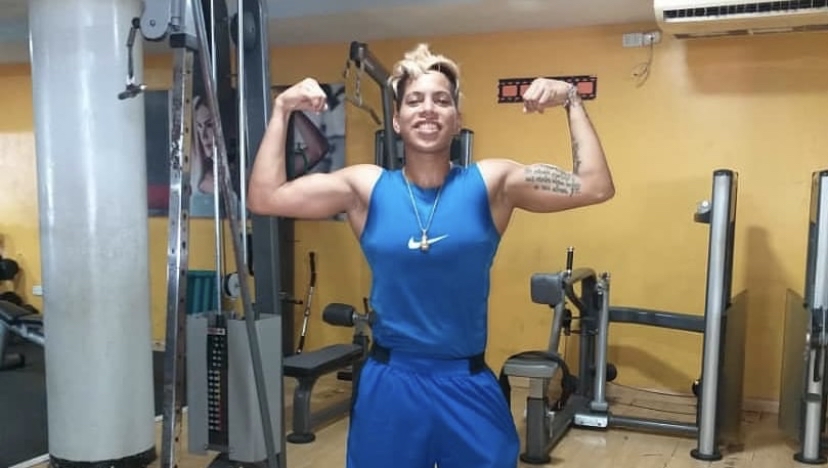
Photo: Johana Gomez.
Gomez continued, praising the efforts of the Leith Victoria coach: “He looks for a better life for me and for my family, because the country I live in, there is no future. Gary is doing his best to get me a sponsor and we are waiting to see about my visa to enter Scotland. I’m very excited about it – I just hope I can be there soon. I know that I can never give up and I am very determined. I pray that people can see how much I train and how much I want to be a great success, for me, my family and for Venezuela.”
She laughed, discussing her happiness at discovering Tyson Fury’s daughter was named after her home nation. Gomez always bets on the ‘Gypsy King,’ she claims.
Despite emerging from a nation which boasts Jorge Linares, the ill-fated Edwin Valero and Israel Contreras as some of its professional world champions, it is a fighter with more directly in common whom Gomez predominantly admires: “My boxing idol is a woman. Her name is Mayerlin Rivas, twice world champion and she is from Venezuela. She goes by the name, ‘La Monita’ [The Little Monkey] Rivas.”
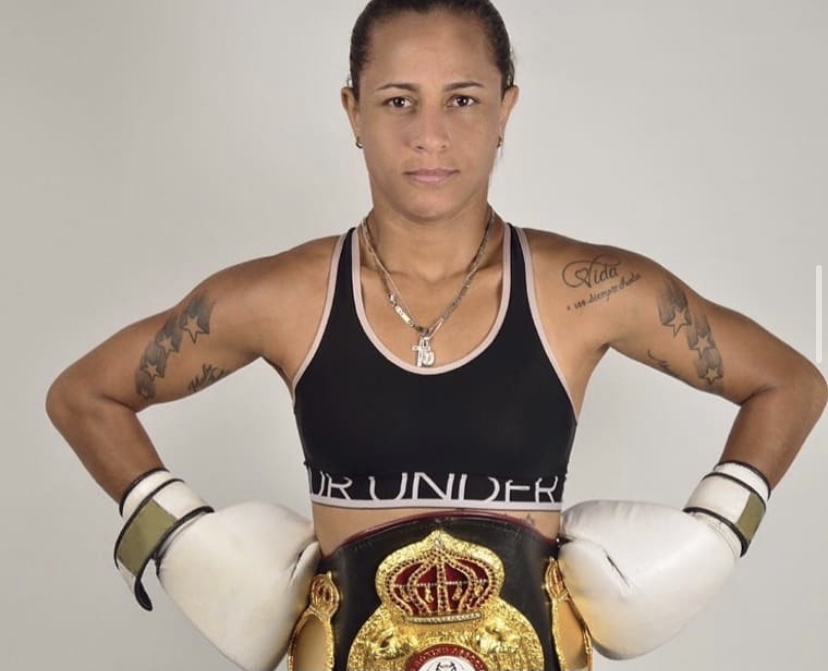
Photo: Chino Maidana Promotions.
After speaking with Gomez and Young over several weeks, I was lucky enough to catch Rivas, the current WBA super-bantamweight world champion, to get a taste of life in Venezuela for a burgeoning, female amateur talent. ‘La Monita’ knows of Gomez and her unwavering tenacity but was quick to acknowledge that surviving – let alone thriving – is difficult for female professionals in South America.
“Women’s boxing in Venezuela is complicated,” the two-weight world champion explained. “I think it is worldwide. Achieving professional success there is difficult since there are no large or high-level promoters who are willing to support new talents and, those that do, exist because obviously they focus more on men due to the money they would generate. So, it is complicated.”
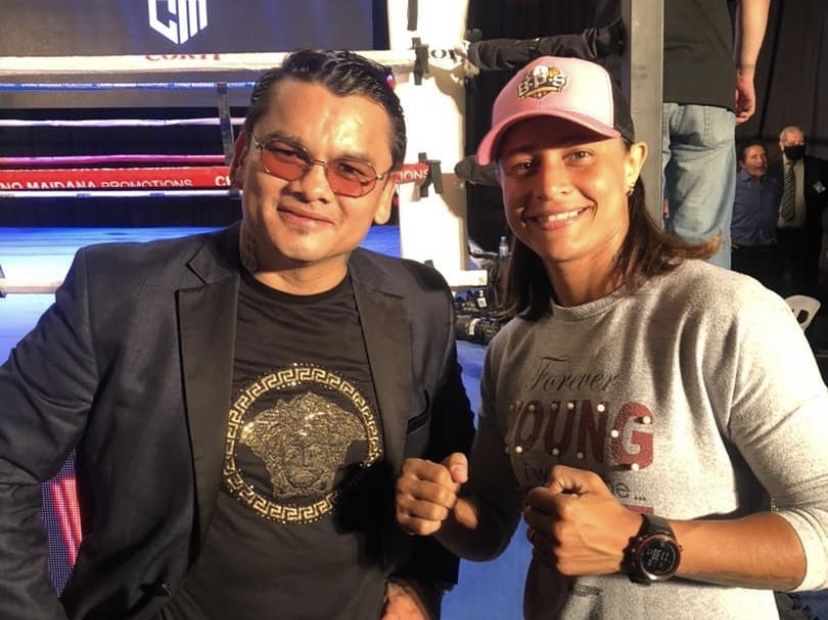
Photo: Chino Maidana Promotions.
Rivas relived her own experience of reaching the sport’s pinnacle: “In my case personally, it was very difficult to get to the stage where I could fight for a title. I remember training with broken shoes and moving from my hometown to go to the capital, and I had to live in a very small room full of humidity to achieve my dreams. I had no support from any institution, but that did not prevent me from continuing to work hard. So, one day, thanks to the effort and because I wouldn’t give up, I got the opportunity to fight for the title.
“There is a lot of talent in Venezuela, and a lot of boxers who are starting with talent like Johana. I saw many boys with the dream of being world champions and, above all, talent and training does not stop them. I hope she is given the support she needs, for sure. Never give up and above all, work day-by-day for those dreams, whether in Venezuela, Scotland, anywhere you want. God will help you achieve it.”
Gomez will need the help of plenty and can rely on few. Her new team had originally looked at April for the execution of her cross-continent move, but with Venezuela currently resting in the Covid-19 ‘Red Zone’ and with the Ps and Qs of her visa being stringently examined, everything is presently on hold.
What bizarrely started from regular visits to an Edinburgh-based Latin restaurant could potentially end up in a South American fighter relocating to Scotland’s often-icy capital. She’s never met Gary Young and the duo don’t even speak the same language. But something just clicks. We spoke about the best-case scenario and Young was adamant that he had to keep Gomez’s feet on the ground.
Gomez is searching for the type of success achieved by her favourite fighter, the great Mayerlin Rivas, who knows only too well of the broken glass she crawled through to attain it. That doesn’t mean the 23-year old from the picturesque La Guairá State isn’t willing to shed blood for boxing. A catchphrase that frequents her own Instagram is: La presion hace diamantes, [pressure makes diamonds] and soon, she’ll understand a different pressure altogether.
“I know how to work hard, even on days when I feel tired or my muscles ache. I force myself to work harder than everyone else in the gym. Women must prove themselves in the boxing gym, we have to train as hard as men. I make sure to train harder than them and run ahead of them when we race outside. I know a lot of things in professional boxing will be difficult; But I look forward to many challenges and I am ready to overcome them all.”
Whether this ambitious move ever comes to fruition remains to be seen; trainer and fighter brought together via social media and a random culinary connection; neither speaking the same language, nor having ever met. But that’s the beauty of it. Boxing calls upon its fans to believe in the fairy tale, time-after-time.
Young continues negotiating the (red) tape while Gomez wraps her hands with it. If it happens, she could be the next Mayerlin Rivas; if it doesn’t, maybe this is all you’ll hear of her. The words of Venezuela’s reigning world champion succinctly clarified the reality of either outcome: “I was convinced that I would become a world champion and I wanted to achieve each of my dreams. So, when my spirits fell, I thought about that and automatically I felt like continuing again. I just kept going…”
Main image: Johana Gomez.
